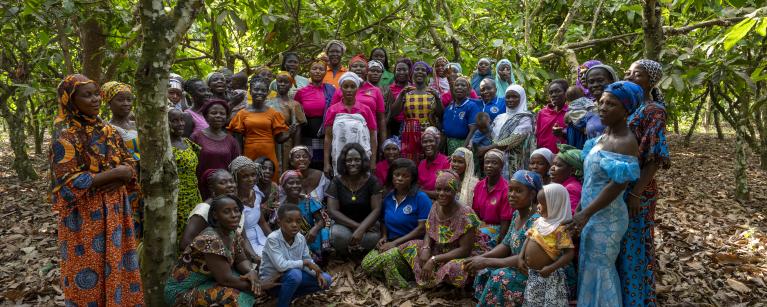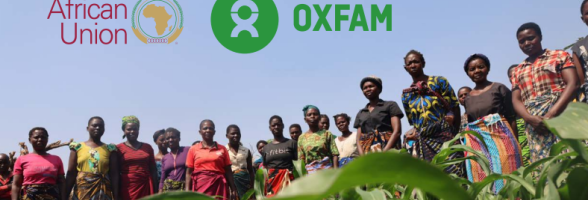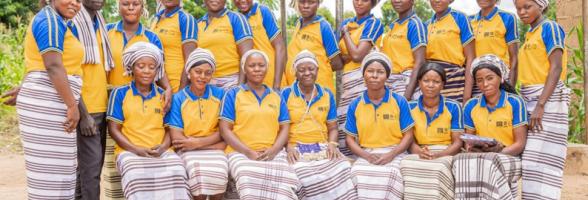From 27th - 29th July 2025, the world convened in Addis Ababa, Ethiopia for the United Nations Food Systems Forum (UNFSS+4). The motivation was to take stock and carve new pathways to scale investments and foster resilient global food systems. The forum was an important milestone for two main reasons. Firstly, at a continental scale, it came after the launch of a new ten-year African blueprint to guide the advancement of food systems in the continent— the CAADP Strategy and Action Plan: 2026-2035 aimed at ‘‘building resilient and sustainable agrifood systems in Africa.’’ Secondly, at a global scale, the forum re-awakens the world to a hunger crisis before us: from war-induced hunger that is ravaging the Gaza strip all the way to Sudan, to the climate crisis that continues to maim and impoverish vulnerable communities while exacerbating gender inequalities. Therefore, the foundational tone of this year's forum emphasized on peace and human rights, as well as adequate humanitarian funding to efficiently deliver life-saving services in complex settings.
While the conference had several outcomes, there was consensus around the need to pursue policy measures that focus on equity and resilience through linking environmental, economic and social dimensions of food systems. The call to action was to implement policies that are rooted in local culture, communities and traditional knowledge to help guide approaches that can accelerate transformation and enhance self-reliance: UNFSS+4 From Rome to Addis and Beyond.This is a great call, but it's certainly not enough. We need to critically examine what must be done differently to have the SDGs delivered by 2030.
As we advance towards 2030, one of the most important approaches is to create localized policy instruments that translate global frameworks into national action plans. The effectiveness of the ambitious global mandate offered by UNFSS+4 will rely on how well it is carried out at the national level. This calls for the creation of policy tools that are inclusive, participative, and represent national realities. With that, government-civil society partnerships become crucial as a method for enhancing the legitimacy, relevance, and efficacy of national food system pathways, in addition to being a fundamental principle. However, there remains a significant gap in how such multistakeholder collaboration is structured and scaled in the policy space. Policy efforts remain fragmented and detached from implementation on the ground. Therefore, bridging this gap through structured, localized, and inclusive policy tools is key to sustainability.
One strong example of meaningful multistakeholder engagement is the partnership between Oxfam (and partners) and the African Union. Demonstrating its commitment to transformative food systems approach and inclusive policy development, the African Union worked with Oxfam and partners to produce a gender policy brief - the Roadmap towards Gender Transformation in the Kampala Declaration and the CAADP Ten-Year Implementation Plan and Strategy (2026-2035) that aims to introduce new gender indicators into the CAADP Biennial Review’s results framework. This would help to ensure that a gender-responsive approach is embedded in agricultural policy and performance tracking.
This brief is pivotal, as the third iteration of CAADP begins in 2026, shaped by the principles outlined in the new Kampala Declaration. The gender lens that this brief influences in the CAADP results framework, through gender responsive indicators, reinforces the need for inclusive governance, accountability, and gender-responsive approaches in agriculture goals that can only be achieved through sustained multistakeholder engagement.
The new indicators of this CAADP results framework will serve the cross-cutting themes in gender inequality that affect food systems performance such as land rights, climate shocks and how they exacerbate gender inequality and women economic empowerment. Besides, the implementation of this gender sensitive framework will yield data that can improve policy making at the national level.
Additionally, this gender brief prescribes various methods of strengthening the localization of agricultural policies within a gender lens. It has recommended the adoption of robust frameworks for women's economic empowerment in agriculture and suggests the development of empowerment programs that truly meet the exact contextual needs of these women, so as to enhance local ownership. Also, it prescribes that parliamentarians build connections with grassroots women movements as a means to build engagement of women's rights constituents in policy discourse and enhance local leadership.
Furthermore, the 2026-2035 CAADP results framework aims to implement the localization agenda and foster local ownership among primary stakeholders in agriculture, particularly women. It emphasizes the importance of gathering data directly from grassroots women's rights organizations and having them as the primary stakeholders in the policy process. Additionally, the framework advocates for improved checks and balances to encourage active citizenship participation in holding governments accountable, thereby promoting local leadership and ownership by the grassroots. As per the UNFSS+4 commitment, this new framework is a prime example of a policy that has centered local communities and has linked the economic, social and environmental dimensions to the process.
The development of this policy brief marks a significant milestone for the continent. With it, the African Union and its development partners have demonstrated its commitment to advancing equitable agricultural systems across Africa – one where a gender-lens is applied. It also provides an avenue for policymakers to work with national governments in ensuring that gender-response in Agri-value chains is cascaded to national level. Furthermore, this brief aligns with the commitment of UNFSS+4 of particularly increasing the creation of policy tools that can be integrated into national pathways and eventually, localized to specific country contexts.
For Africa, there is still a long way to go in building sustainable food systems, but the new CAADP results framework is a good start to address some of the inequities of the current state of agriculture in the continent. If implemented as envisioned, in the post-Malabo consultative process , it will serve as a blueprint that ensures the region implements inclusive and sustainable food systems that impact the grassroots, thus serving as a relief to the already weak food systems structures, we have in the continent, and promising a brighter future to food system transformation in Africa.
Ultimately, what must change is not only the content of our policies, but the process of their development. Policies must touch base with grassroots realities, be informed by diverse voices, and be designed for specific contexts. Policy making should not be done in silos but rather, rightfully include the primary stakeholders in the process from the beginning with local leadership and ownership being the end goal. A human centric approach that is pinned on justice is what should define the next five years in terms of policy making. UNFSS+4 has set the tone. Now, it's time for countries and stakeholders to match that tone with, intentional inclusive actions so that by 2030, food systems are just, sustainable and fully integrated to localization levels and truly transformative.


